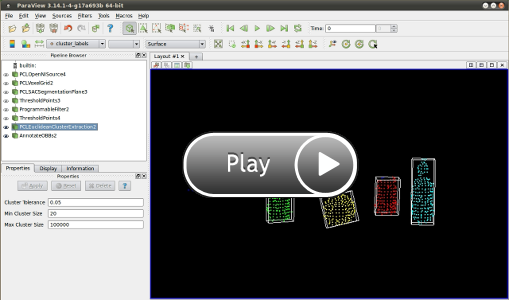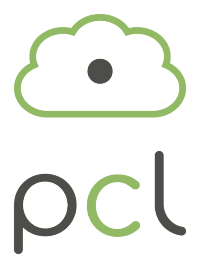ParaView/PCL Plugin: Difference between revisions
No edit summary |
No edit summary |
||
| Line 22: | Line 22: | ||
=== News === | === News === | ||
* We will present the PCL plugin and give a demo at this year's CVPR in Providence, RI (Sunday, June 16, 4.55pm - 6.30pm). Browse the [http://www-sop.inria.fr/manifestations/pcp2012/ | * We will present the PCL plugin and give a demo at this year's CVPR in Providence, RI (Sunday, June 16, 4.55pm - 6.30pm). Browse the [http://www-sop.inria.fr/manifestations/pcp2012/ PCP workshop website] for more information. | ||
=== References === | === References === | ||
Revision as of 20:21, 13 June 2012
What is the PCL Plugin ?The PCL plugin for ParaView allows users to access filters from the Point Cloud Processing Library (PCL) within ParaView. The plugin wraps PCL algorithms as VTK filters. The plugin also provides Python bindings for the filters using VTK's python wrapping, thus enabling fast prototyping and integration with NumPy and SciPy. With point cloud data loaded in ParaView, users can interactively apply PCL algorithms, color the point clouds by different attributes, and quickly compose complex processing pipelines to explore the point cloud data. Currently supported PCL algorithmsAt the current stage of development, the plugin provides several of PCL's core algorithms for point cloud processing, including:
News
ReferencesIf you are using the plugin for your project, please cite the following paper:
Here's the corresponding Bibtex entry: @inproceedings{Marion12a,
author = {P.~Marion and R.~Kwitt, B.~Davis and M. Gschwandtner},
title = {PCL and ParaView - Connecting the Dots},
booktitle = {CVPR Workshop on Point Cloud Processing (PCP)},
year = 2012}
|
|



